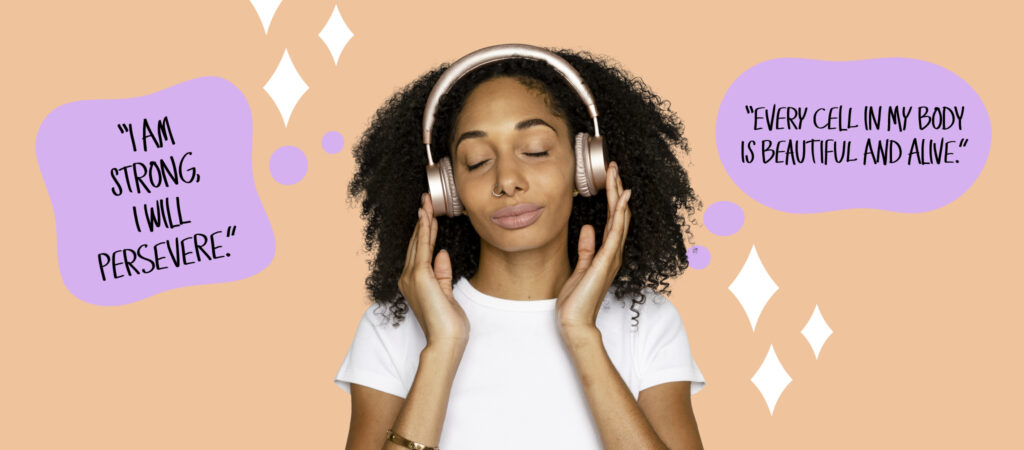5 Ways to Recognize and Cope with an Anxiety Attack

Medically reviewed by Susan Vachon, PA-C on January 10, 2022
An anxiety attack, also known as a panic attack, can feel like the end of the world. If you’ve ever experienced one, you know what we mean. You’ll feel sweaty, trembly, short of breath, and an impending sense of doom. In short, they’re not so fun to deal with.
However, you don’t have to let an anxiety attack control you. By learning ways to recognize and cope with an anxiety attack, you can take a stand. Try out these tips the next time you feel that familiar wave of panic starts to settle in.
1. For Shortness of Breath, Try Guided Breathing
When an anxiety attack hits, it’s common to experience shortness of breath. This happens because your body is going into fight-or-flight mode. Breathing is controlled by a part of the brain called the sympathetic nervous system. When you’re in fight-or-flight mode, this part of the brain is overactive, causing you to breathe faster, your heart rate to go up, and your muscles to feel tense.
Nurx offers prescription treatment for anxiety and depression for as little as $0 in copays or $25 per month without insurance.
If this happens to you, you may find it hard to catch your breath, causing you to breathe rapidly. It may feel wrong, but in these instances, try to slow down your breathing. Breathe in as slowly as you can through your nose. Then, breathe out slowly through your mouth.
Don’t be afraid to be dramatic with your breath! Sometimes, listening to the sound of your breathing can help calm you further. Make sure your breaths are deep and come from your belly. You may also want to try counting to five on each inhale, then five on each exhale.
2. For Tense Muscles, Try Progressive Muscle Relaxation
Thanks to the sympathetic nervous system response we mentioned earlier, you’ll likely have tense muscles, trembling, or tingling throughout your body. Not only can this be uncomfortable, but it can further contribute to the sense that something is seriously wrong.
That’s why a technique like progressive muscle relaxation may be able to help. This method works by having you purposely tense up muscles in a specific part of your body, like your neck and shoulders. While this may seem a bit counterproductive, when you finally relax these muscles, you’ll feel a release of tension that may help you calm down.
Research has found that progressive muscle relaxation is a great way to reduce the symptoms of stress, depression, and anxiety. It has even been shown to improve feelings of well-being, which should come in handy in the midst of your anxiety attack.
3. For Overwhelming Fear and a Sense of Doom, Try Visualizing
In a particularly stressful moment, you might get swallowed up by your poisonous thoughts. It might feel like there is no way out of your struggle. Keep in mind, this is just your fight-or-flight response kicking in, not the reality.
To help your brain calm down, it might help to focus your thoughts on something in front of you. If you can, focus on an inanimate object. Study all of its characteristics and describe it to yourself in your head. By focusing all of your thoughts on this object, it can give your sympathetic nervous system time to calm down and stop being overactive.
Don’t feel like focusing on an actual object? You can try this same method by closing your eyes and visualizing a peaceful environment. Put all your mental energy into picturing this place, and eventually, you may find yourself less anxious than before.
4. For Feelings of Unsteadiness, Try Scent Therapy
Many people don’t realize it, but scent plays a huge role in our mental and emotional health. Scientists have performed numerous studies testing the effects of aromatherapy on anxiety. And luckily, most of those studies have come back with positive results.
One study, in particular, took a look at how lavender, rose, orange, bergamot, lemon, sandalwood, clary sage, Roman chamomile, and rose-scented geranium essential oils performed for anxiety relief. The common link between all of these scents is the type of chemical components dominating each essential oil. Many contain terpenoid alcohols, which can help to improve blood flow in the brain. Others contain linalool, which can protect against oxidative stress in the brain.
In other words, breathing in these smells when you’re feeling down might help your brain get more oxygen. And when your brain is oxygenated, it can work more efficiently and more balanced, lowering your anxiety symptoms.
Ready to try it out? Carry a scent inhaler with you just in case you have an anxiety attack on the go. At home, you may want to invest in an essential oil diffuser to help you stay calm.
5. For Feelings of Being Detached, Try Repeating a Mantra
During a panic attack, you may no longer feel like you’re part of the world. You might be floating outside yourself, watching from a distance. To help yourself stay grounded and present, it can sometimes help to repeat a mantra.
A mantra is a comforting saying or motto that you can use to inspire yourself. For example, you might choose something simple like, “I am strong, I will persevere.” Or, you might go with something a little more inspirational, like, “Every cell in my body is beautiful and alive.” If you have a hard time with motivational quotes, you can also try counting or quoting your favorite movie line.
Focus on these words as you repeat them over and over in your head. Eventually, they should start comforting you, especially if you begin to believe what you’re saying.
If Your Anxiety Isn’t Going Away, Get Help
Here’s the thing. One isolated panic attack every once in a while isn’t fun, but it’s not the same as having recurring panic attacks. This is a more serious problem that can stem from having a panic or anxiety disorder. If your panic attacks keep coming back, you may need additional help from a medical professional. Learn more about anxiety treatment at Nurx so that you can work on getting rid of your anxiety for good.
This blog provides information about telemedicine, health and related subjects. The blog content and any linked materials herein are not intended to be, and should not be construed as a substitute for, medical or healthcare advice, diagnosis or treatment. Any reader or person with a medical concern should consult with an appropriately-licensed physician or other healthcare provider. This blog is provided purely for informational purposes.





